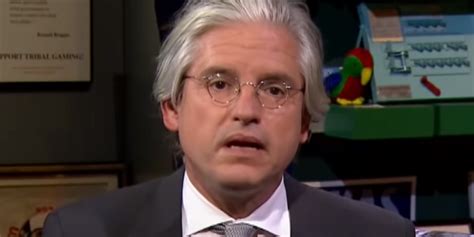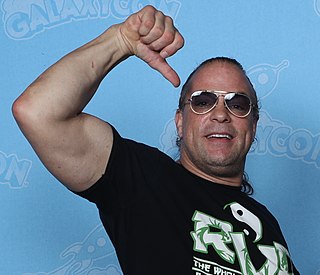A Quote by David Brock
Editors of conservative magazines aren't out trying to raise money. The money is there; the cash reserves are in the bank.
Related Quotes
At the base of the Fed pyramid, and therefore of the bank system's creation of "money" in the sense of deposits, is the Fed's power to print legal tender money. But the Fed tries its best not to print cash but rather to "print" or create demand deposits, checking deposits, out of thin air, since its demand deposits constitute the reserves on top of which the commercial banks can pyramid a multiple creation of bank deposits, or "checkbook money."
Under the old system - which is now so archaic that a lot of people can't remember it - if you wanted money you had to go to the bank and take the money out in cash form, and you couldn't take out money that you didn't have. But with the credit card you can spend money you don't have, and that is just so tempting.
JPMorgan was already, for the most part. Our businesses at JPMorgan share the same cash-management systems. The commercial bank, the private bank, the retail bank, they all use the branches. The cash-management system moves the money around the world - for global corporations, and for you, the consumer, too.
For me, money is to use - it's only to use. So I never have money because I always spend. That's why in a way I protect myself in having houses. But if I had just cash or kept it in the bank, I'd spend it immediately. But not for stupid things. So I don't like to have money. I never have money in my pocket.
To walk in money through the night crowd, protected by money, lulled by money, dulled by money, the crowd itself a money, the breath money, no least single object anywhere that is not money. Money, money everywhere and still not enough! And then no money, or a little money, or less money, or more money but money always money. and if you have money, or you don't have money, it is the money that counts, and money makes money, but what makes money make money?
My undergraduate degree was in art history! Raising money for Chipotle was really my MBA. The money for my first restaurant came from my dad, the second from mostly cash flow. The third was an SBA loan. After my dad invested $1.5 million to open a few more, he suggested I raise the money myself for the experience.
What happened was that for every $100 of money, by which I mean the cash that people keep in their pockets, and the deposits they have in the bank, for every $100 of money that there was in 1929, by 1933 there was only $67. The Federal Reserve allowed the quantity of money to decline by a third. While, at all times, it had the possibilities and the power of preventing that from happening.
Generally, you want to raise capital either when you have to or when it's really easy. If the company desperately needs money, and they can't figure out any other way, then they need to raise money. Or if someone's offering you easy money on good terms, you should take it because you can use it for good things.
Regardless of what you plan to use it for, the goal should always be to raise money right before you need it. You don't want to get into a situation where you need cash and you're unable to raise it - or you're unable to raise it on favorable terms. As with any negotiation, you want to raise from a position of strength.



































